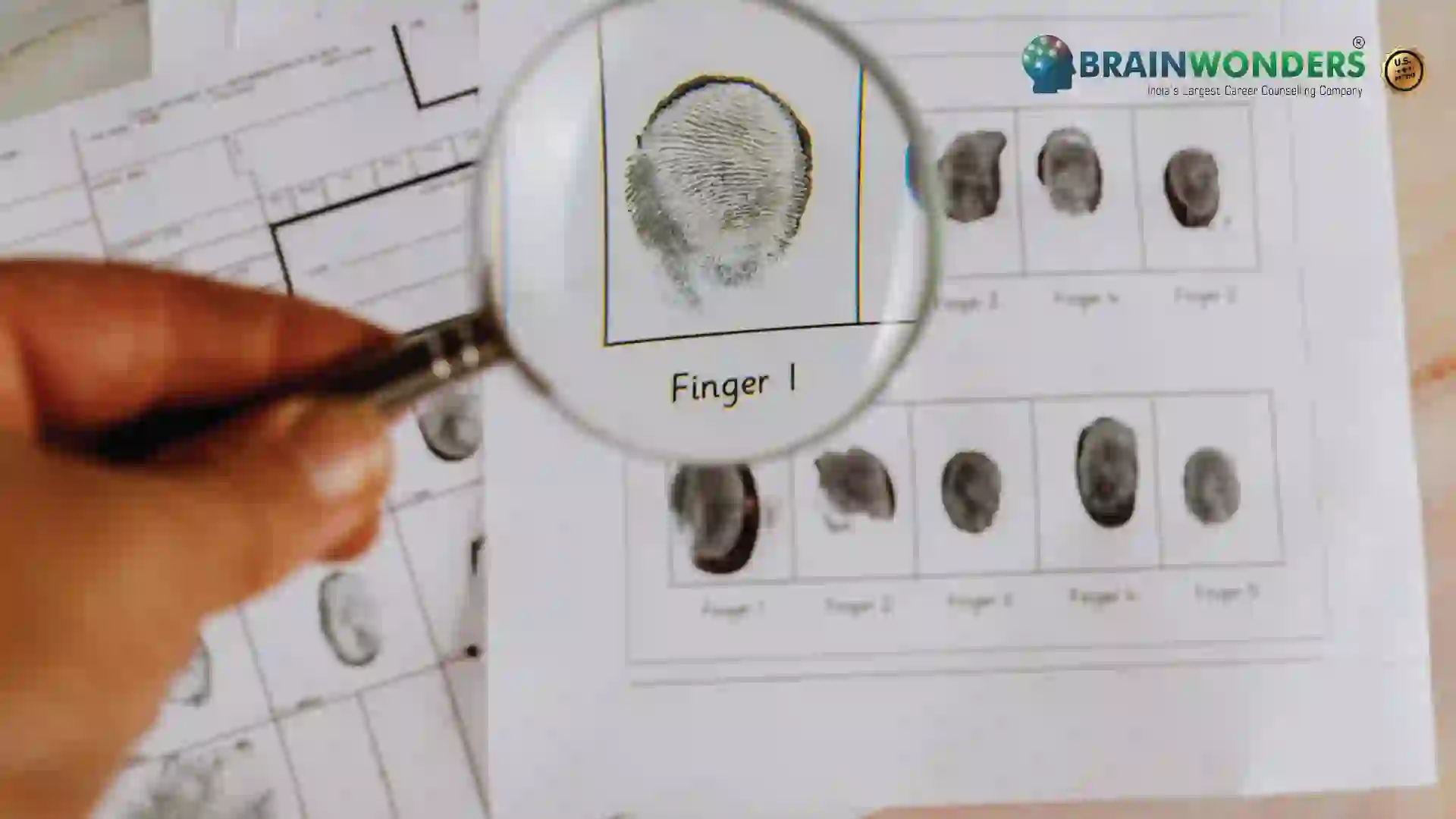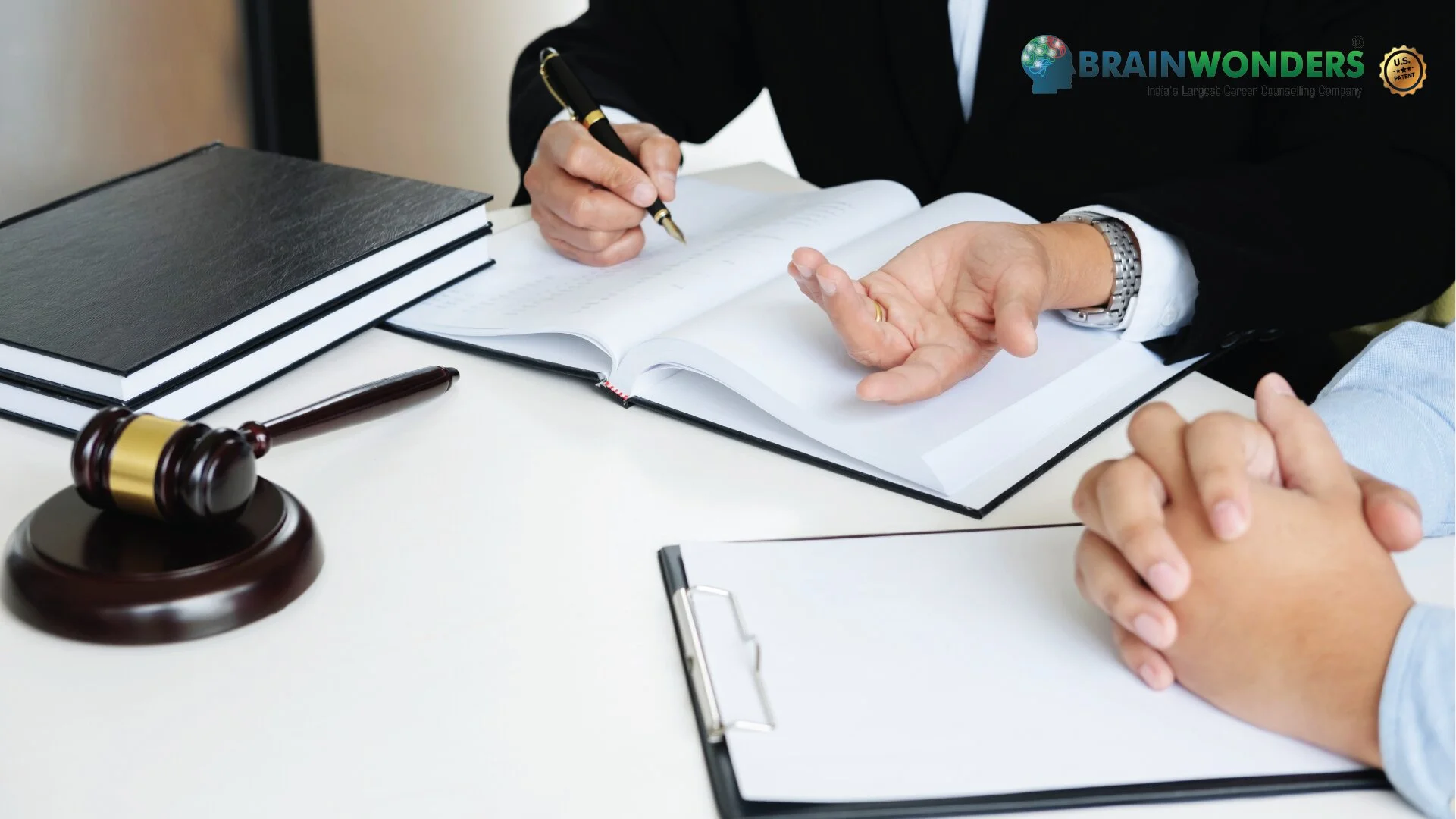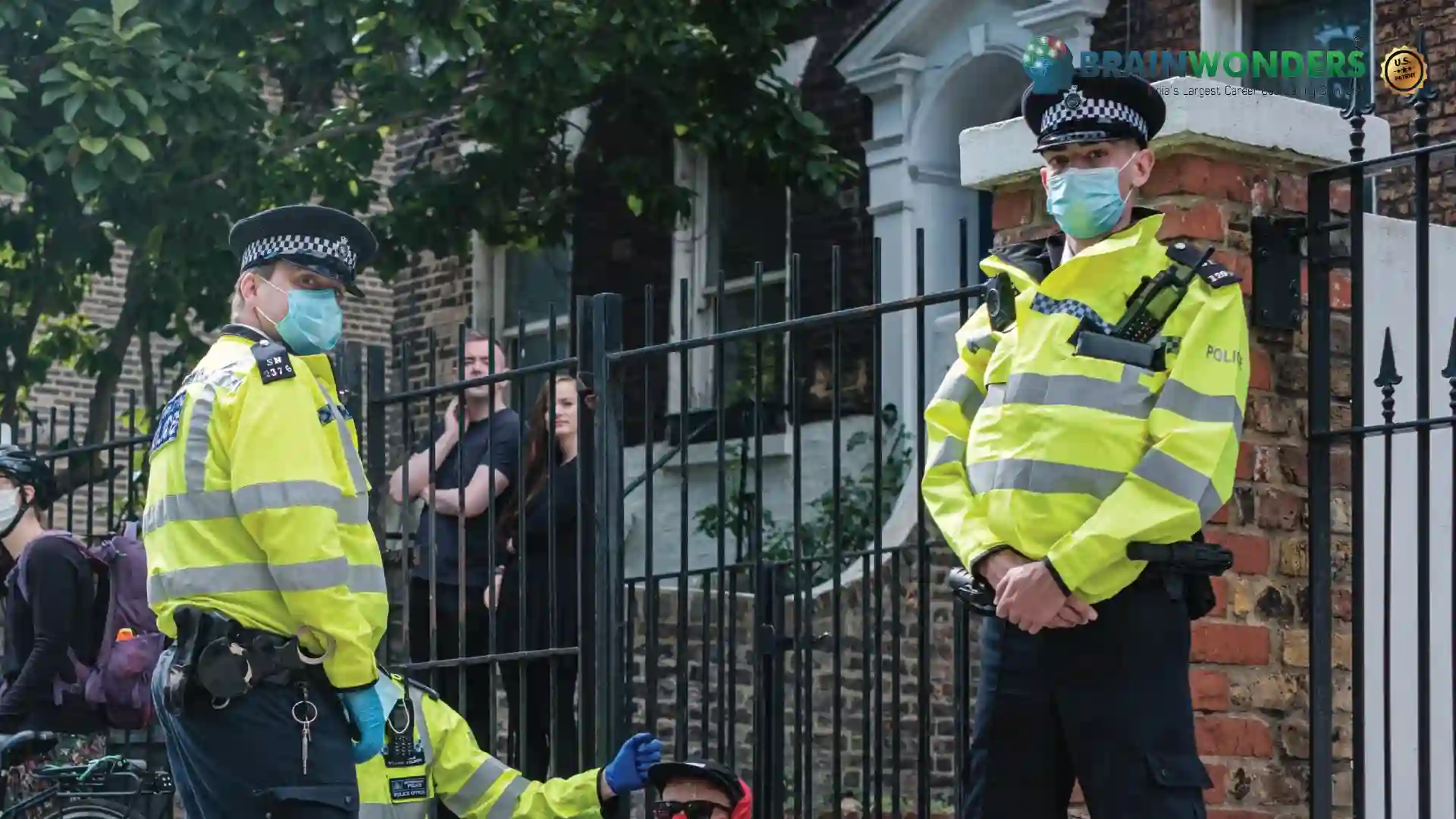How to become a Police Identification and Records Officer
Overview, Courses, Exam, Colleges, Pathways, Salary

Overview
Who is Police Identification and Records Officer ?
Evidence is gathered by Police Identifications and Records Officers on the scene of crimes, fingerprints are classified and identified, and evidence is photographed for use in legal proceedings. Some of their activities include-Maintain records of evidence and writing and reviewing reports. Document legal or regulatory information. Write operational reports. Package, store and retrieve evidence. Follow established protocols for processing forensic or legal evidence. Wearing protective gear and employing powders and chemicals, examine and analyze evidence at crime scenes and in the laboratory. Analyze evidence from the crime scene. Follow established protocols for processing forensic or legal evidence. Lift latent fingerprints from crime scene regions that have been dusted and preserved according to industry standards. Examine crime scenes to obtain evidence.
Typical day at work
What does Police Identification and Records Officer do?
- Keep evidence records and draft and review reports
- Packaging, storing, and retrieving evidence
- Provide evidence for legal action to superiors, crime experts, or court authorities
- Bear witness and present facts in court
- Examine and process proof in crime scenes, autopsy or laboratory use of protective gears and utilizing powders and chemicals
- Search for signs of traces such as fingerprints, hair, fibers, or shoe impressions, using alternate light sources when required
- Film and photograph crime and accident scenes for records of evidence
- Dust identified crime scene areas and remove latent fingerprints, adhering to appropriate protocols for preservation
- Make sketches and diagrams by hand or with computer software to demonstrate the crime scenes
- Serve as professional advisor and facilitate the sharing of information on crime scene recovery operations with other law enforcement agencies or legal staff
- Coordinate or carry out educational courses or in-service and crime scene training for other officers
- Interviewing victims, witnesses, suspects and other police personnel
- Use systems such as the Automated Fingerprint Identification System (AFIS) or the Henry Classification System to identify, compare, classify and file fingerprints.
- Process the prints in a laboratory to more accurately identify and classify them.
Abilities and Aptitude needed
What are the skills, abilities & aptitude needed to become Police Identification and Records Officer?
- Individuals who are patriotic, passionate to serve the nation and have ample knowledge of the Indian Constitution, Laws, and other rules and regulations, and desire to contribute in national A person at peace is qualified to work as a Police Identification and Records Officer. This necessitates both physical and mental health.
- When interacting with people, they must be calm, assertive, and relaxed, even in the face of adversity. They should also be able to conduct compelling interviews and remain confident in the face of antagonism.
- Problem-solving, judgement, negotiating, decision-making, organizational, and analytical are among the other talents needed. They also need to be efficient in leadership, team and time management, such as meeting deadlines, prioritizing tasks, and taking personal responsibility for a professional workload. There is a lot of paperwork to deal with; therefore, they require excellent communication and interpersonal skills.
- The field also demands self-discipline, patience, punctuality, commitment, determination, self-confidence for the intense training they go through. This also requires them to have good stamina and physical fitness. To be a part of the armed forces, integrity and having a sense of responsibility is crucial.
- When they are on the ground, they need to be an alert, courageous team player, dependable, and look out for their colleagues; having leadership skills acts as an added benefit.
- They must accept the responsibility attached to the limitless power. Hard labour, attention, flexibility and adaptation are essential to work efficiently in challenging settings and at strange hours. Also anticipated is a proactive attitude to planning and management.
Salary
Salary for Police Identification and Records Officer?
Here is some information about the role, salary, and career prospects of a Police Identification and Records Officer:
- Minimum Monthly Salary: The minimum monthly salary for an entry-level Police Identification and Records Officer may vary based on the region, department, and experience level. It could range from INR 25,000 to INR 40,000 or more in India.
- Maximum Monthly Salary: Highly experienced and skilled Police Identification and Records Officers, especially those in senior positions or with specialized training, may earn a monthly salary ranging from INR 70,000 to INR 1,00,000 or more.
- Annual Salary: The annual salary for entry-level Police Identification and Records Officers could be approximately INR 3 lakhs to INR 5 lakhs per year. Experienced and well-qualified officers may earn a maximum yearly salary ranging from INR 8 lakhs to INR 12 lakhs or more.
- Highest-Paying Jobs and Scope: The highest-paying jobs for Police Identification and Records Officers are often found in specialized law enforcement units, such as SWAT teams, anti-terrorist units, or investigative divisions. Advancement opportunities exist for officers with exemplary performance, leadership skills, and additional training in cybercrime, narcotics, or community policing. As the need for law enforcement remains constant, Police Identification and Records Officers with strong problem-solving abilities, communication skills, and a commitment to public service will have opportunities for career growth and advancement in the field. Experienced officers may progress to higher-ranking positions, such as supervisors or managers within the Identification and Records department or other specialized units.
Pathways
How to become an Police Identification and Records Officer?
Entrance Exam
Entrance Exam for Police Identification and Records Officer ?
Courses
Which course I can pursue?
Best Colleges
Which are the best colleges to attend to become an Police Identification and Records Officer?
Industries
Which Industries are open for Police Identification and Records Officer?
Police Identification and Records Officers primarily work within the law enforcement sector, and their expertise is essential in various industries related to criminal justice, public safety, and forensics. Here are some industries where Police Identification and Records Officers may find employment or related opportunities:
- Law Enforcement Agencies: Police Identification and Records Officers are integral to law enforcement agencies at local, state, and federal levels, where they handle the documentation and management of criminal records, fingerprints, and other identification information.
- Forensic Laboratories: Police Identification and Records Officers work closely with forensic laboratories, assisting in the analysis and processing of evidence, including fingerprints, DNA, and other identification data.
- Criminal Investigation Units: Identification and Records Officers play a crucial role in criminal investigations, working alongside detectives and investigators to identify suspects and manage vital case information.
- Corrections and Prisons: In correctional facilities, Identification and Records Officers may be responsible for managing inmate records, processing new arrivals, and maintaining secure identification systems.
- Public Safety and Emergency Management: These officers may collaborate with public safety agencies during emergencies, providing identification expertise for disaster response and victim identification.
- Cybersecurity and Digital Forensics: As technology advances, Identification and Records Officers may contribute to digital forensics and cybersecurity investigations involving electronic evidence.
- Private Security: Some personal security firms may employ Identification and Records Officers for background checks, access control, and identity verification.
- Immigration and Border Control: At immigration agencies and border control checkpoints, these officers may be involved in the identity verification and fingerprinting of travelers.
- Research and Academia: Identification and Records Officers may work in research institutions or academia, contributing to developing forensic technologies and identification methodologies.
- Policy and Compliance: Some Identification and Records Officers may find opportunities in policy development or compliance roles, ensuring adherence to identification and records management regulations.
- Legal and Law Firms: These officers may provide expertise in fingerprint analysis or identification evidence in legal cases.
- Nonprofit Organizations: Some nonprofit organizations focused on criminal justice reform, victims' rights, or public safety may require identification and records expertise.
internship
Are there internships available for Police Identification and Records Officer?
Internship opportunities designed explicitly for Police Identification and Records Officers may be limited compared to general law enforcement internships. However, individuals interested in pursuing a career in this field can still explore relevant internship options within law enforcement agencies or related organizations. Here are some potential internship opportunities for aspiring Police Identification and Records Officers:
- Law Enforcement Agencies: Some police departments or agencies may offer internships in their Identification and Records divisions. Interns may assist with processing and maintaining records, fingerprint analysis, or other administrative tasks.
- Forensic Laboratories: Interning with forensic laboratories that handle evidence analysis, including fingerprints and DNA, can provide valuable experience for individuals interested in police identification and records work.
- Criminal Investigation Units: Interns may have the opportunity to work with criminal investigation units to understand how evidence and identification information are used in solving cases.
- Information Technology (IT) Departments: Police identification and records officers often utilize technology for data management. Interning with IT departments can provide insights into the technological aspects of the job.
- Crime Scene Units: Interns can gain hands-on experience with crime scene processing and evidence collection, which is essential to the identification and records process.
- Community Policing and Crime Prevention: Some community-oriented policing programs may involve identification and records-related tasks. Interns can participate in community engagement initiatives and public safety awareness campaigns.
- Research and Policy Development: Interning with law enforcement policy research organizations can offer exposure to developing identification and records-related policies and procedures.
- Training Academies: Internships at police training academies may provide exposure to the training and education of law enforcement officers, including aspects of identification and records management.
- Public Safety and Emergency Management: Interns may work with public safety agencies that collaborate with law enforcement on identification and records matters during emergencies.
Career outlook
What does the future look like for Police Identification and Records Officer?
Police Identification and Records Officer maintains and handles all the records for the specific evidence found in the police cases, reviews them, writes reports on them, and makes sure that this evidence stays safe for any further use or testing. They also tend to receive or retrieve, store and maintain the evidence package. They also tend to submit all the evidence and documents to their seniors, supervisors, and even the court whenever the evidence needs to be presented. They require enough critical thinking, good communication skills (both written and verbal), and technical skills in case they need to record something or work on the other technical aspects. The police identification and records officer's work is quite diligent as they are the essential link between the police case and the court proceedings.





.webp)

